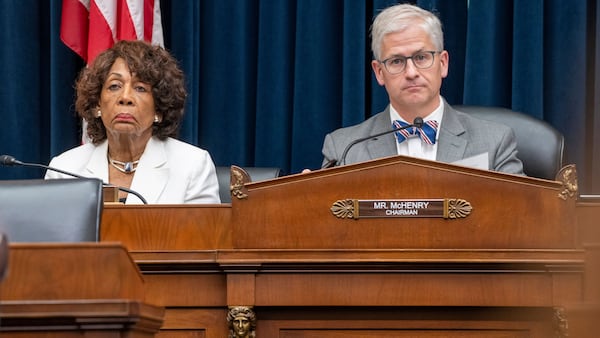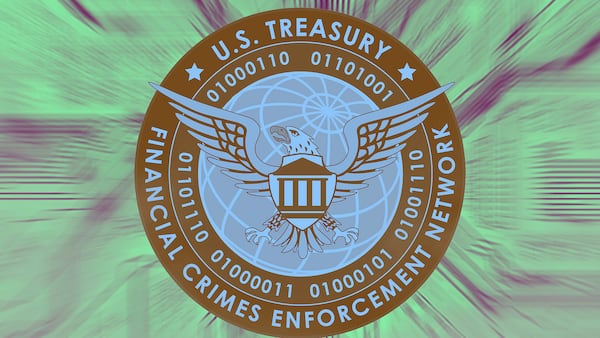- Coin Center lost its lawsuit against the US Treasury over sanctions on Tornado Cash.
- Crypto attorney Moish Peltz explains that appeals are unsuccessful.
The US Treasury’s Office of Foreign Assets Control was within its rights to put cryptocurrency mixer Tornado Cash on its sanctions list, a court ruled on October 30.
The lawsuit, which was brought by crypto advocacy group Coin Center against OFAC, claimed the agency exceeded its statutory authority by sanctioning Tornado Cash.
“It’s a disappointing result. We plan to appeal,” Coin Center’s director of communications, Neeraj Agrawal, told DL News.
Tornado Cash is an Ethereum-based protocol that allows users to blend cryptocurrency transactions with others, therefore obfuscating their transaction history.
OFAC added Tornado Cash to its sanctions list in August 2022, arguing that the protocol was being used by North Korean state-sponsored cybercriminal syndicate Lazarus Group.
Coin Center sued OFAC in October 2022, arguing that Tornado Cash was not a person or an entity, but an open-source software tool, and that the Treasury wasn’t authorised to sanction computer code.
The Treasury Department did not respond to requests for comment.
Deference to agencies
“I’m not particularly surprised” by the ruling, Moish Peltz, a crypto attorney at Falcon, Rappaport and Berkman, told DL News.
“Trial courts generally give deference to agencies” like OFAC, Peltz said, adding that pushback against governmental agencies tends to happen at the appellate or Supreme Court levels.
The suit concerned three issues: whether OFAC exceeded its statutory authority, whether the Tornado Cash designation was arbitrary or capricious, and whether the sanctions violated First Amendment rights.
The court seemed “pretty convinced” on all three counts that OFAC was in the right, Peltz said.
The judge notably did not allow oral arguments to be made, which would have allowed both parties to answer follow-up questions and clarify their positions.
Major questions doctrine
One of Coin Center’s arguments rests on the major questions doctrine, a legal precedent that curbs overreach by government agencies.
That principle is the flavour of the month in crypto litigation. Leading exchanges Binance and Coinbase are both invoking it in their respective cases against the Securities and Exchange Commission.
Major questions rests on a simple idea: Congress doesn’t generally delegate questions about significant parts of the economy to agencies like the SEC without being explicit about it, and courts should watch out for agencies that try to claim that power.
The doctrine is therefore “a little more pointed” in crypto cases against the SEC, Peltz said, since the agency is claiming the authority to regulate the digital assets industry, a new market, almost in its entirety.
But OFAC was specifically designed to sanction entities, said Peltz, meaning that if the court recognizes Tornado Cash as an entity despite being open-source software, then OFAC has the authority to designate the protocol.
Trials courts are tasked with applying existing laws, while appellate courts can potentially interpret the law differently.
“To the extent that the trial court got the analysis wrong, or that Coin Center wants to make the argument that the law as applied is actually not proper, the vehicle to make that challenge would be on the appeal,” Peltz said.
However, “reversals on appeal are a relatively low percentage chance,” he added.
Cracking down on crypto mixing
Tornado Cash developer Alexey Pertsev was arrested in the Netherlands in August 2022. He is facing money laundering charges, with a trial scheduled for March.
The US Department of Justice has also indicted Tornado Cash co-founders Roman Storm and Roman Semenov with sanctions violations and conspiracy to operate an unlicensed money transmitting business.
Prosecutors allege the protocol helped launder over $1 billion worth of illicit funds.
Peltz said he didn’t expect the ruling against Coin Center to impact the cases of Storm, Semenov, or Pertsev.
The US Department of the Treasury’s Financial Crimes Enforcement Network proposed new regulations on October 19 to restrict the use of crypto mixers.
The agency claimed they pose a “primary money laundering concern” due to their use by Hamas, the Democratic People’s Republic of Korea, Palestinian Islamic Jihad, Russian-associated ransomware attacks, and illicit darknet markets.
Tom Carreras is a Markets Correspondent at DL News. Got a tip about Tornado Cash? Reach out at tcarreras@dlnews.com







